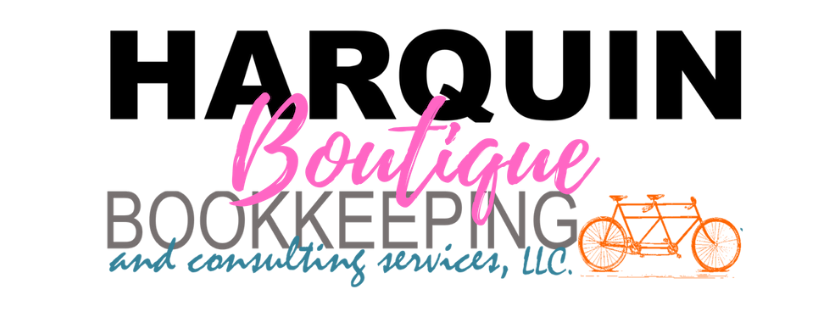Ep 15 | How to Create a Budget You’ll Actually Use
Last week, we began part one of a two-part series on budgeting on the podcast. Lindsey Roberts shared a fresh, new perspective on budgeting and how our modern systems are actually a version of an old, traditional system that has always worked! To continue the conversation on budgeting this week, Stephanie Coakley, one of our CPA consultants, gives us the scoop on budgeting and what boutique owners really need to know. This podcast is for you if you've always wanted to implement a budget that really works, but have never made it happen!
How do you define budgeting?
The best way to define a budget is that it’s basically a plan for how your business is going to spend its money. Since our money in our business is going to come from sales, that’s where we always start when creating a budget. We estimate our sales and our expenses for the budgeted period and this tells us a lot about our business operations, our projected cash flow, etc. Another thing on the budgeted period I want to mention is, usually the budget is over the course of a year, but if you’re getting started later in the year, we can create a budget that is three months, six months, or even longer than a year if you’re looking at longer term goals. The whole budgeting process is going to be your guide for how do I want to spend the money that I am making in my business.
Our suggestion is to always look at prior year’s data because it’s going to give you the best indication of your sales trends - busy and slow months, what expenses you spend your money on - advertising, etc and it’s always better to start there and then we can go into asking more questions for other expenses we may have or see during the year. If you don’t have that history with your business - if you’re brand new, and you do not have a prior year period history we can always start from scratch. We keep it basic. You just want to estimate and project what your income sources are, where are your sales going to come from and what are the expenses that will support these sales.
Why do boutique owners need to create a budget?
There are so many reasons. The most convincing reason for any boutique to create a budget is that the budget provides us with a view into the future of our business and what I mean by that is, it allows us to see what our business may look like in three months, six months, or one year based on the information we have projected.
It also helps us answer crucial questions regarding the operations of your business. Some of these questions are: Are we even able to fund operations? How much cash are we going to have at the end of the year? Are we possibly spending too much money in one area or another area?
The budget assists us in decision making, goal setting - we can build goals directly into our budgeted line items and use our budget as a tool for monitoring that performance, so you have a tangible objective right there with inside your budget for where you want to get with sales, or if you’re trying to keep your expenses down, a budget is a great tool and a great starting point for that.
The budget provides a baseline against what we can monitor our actual business performance. Once we have our budget created, I think one of the most powerful things it can do for us when it actually starts working for us is to take our budget and what we think was going to happen during that period and compare it to what actually happened, and it gives us tremendous insight into our business operations and where we may need to make corrections or where we may even have certain business opportunities.
Lastly, a big thing the budget helps us do is to manage our CASH FLOW. Your budget is going to be quick indicator of your cash position during and at the end of the year which is extremely important - we don’t want to get a few months into our business and we’re running low on cash or not know why our cash is depleting. A budget is something that can alert us as long as we’re using it in that reporting and maybe looking at things monthly to see what is going on with our cash.
Overall, how can a budget empower boutique owners?
A budget is a current buzzword and it can feel like this unattainable thing we talk about, but I want to be very clear - a budget is a very powerful tool and it’s worth the time to understand it and utilize it and the benefits of budgeting are woven throughout the entire process and these benefits will empower you in your business. A few benefits:
When we’re creating our budget, it gives us the insight into our business operations and this is more so if we have that prior year data, because the first step in that budget creation is, what does my prior year look like? What do my sales look like? What trends am I seeing? What are the expenses? Where am I spending my money? This gives us knowledge and knowledge is power and builds our confidence in our numbers and knowing our business operations overall is going to build our confidence and empower us.
Once the budget is created then we can help clients get it into the financial systems and let it work for them. There are budgeting reports that can be run monthly to compare what we thought would happen vs what did happen and this analysis is invaluable because it’s going to give us insight into whether we’re hitting the goals we set when creating our budget; it’s going to alert us to potential problems before they occur or get out of hand; and it allows us to have something against which to reevaluate and make necessary changes in spending.
Once you have a budget, I compare it to turning on a light in a dark room. We can have confidence in our numbers, we can manage our operations more effectively as a proactive participant in the process.
Once a boutique owner has their budget (either with a CPA consultant or on their own), what’s the next step?
Our suggestion is that they would get their budget into their financial system. For most, this will be QuickBooks so we would enter the budget in by month into QuickBooks and then each month as our actuals come in for the month - let’s say we have our budget created for the year and it’s January and we’ve gone through the month, and we’re now in February so we want to look at what happened in January, we can run a budget to actual report that’s going to show you your actuals for January against what we thought would happen and then what we can do is look at each line item and say okay we budgeted x dollars for sales and where are we? Are we over that? That’s great. Are we under it? Maybe we need to reevaluate, or look and see about how we can increase our sales. We can move down and do the same thing with expenses. I think the important thing to realize is we can’t just look at these line items just individually by their line; we need to keep in mind the total budget when we’re doing this. What I mean by that is, say we have a client and we’ve budgeted sales the first month of the year and they haven’t met their sales goal for the month, but say we get down into advertising and we’ve budgeting $100/mo for the advertising and you’ve only spent $15 of it, there is an opportunity. Maybe we have dollars we’ve saved there in an advertising budget, maybe we use those dollars, put it into advertising because advertising is a way that could potentially result in more sales for us. It all relates to each other and like we said, it’s an invaluable analysis to be able to go line by line and evaluate what did I think was going to happen and what actually happened? Then ask the question why? And what do I need to do going forward?
If you want to invest in really affordable education on how to run a business and be a part of a community of likeminded boutique owners - join Boutique School today, our membership program that gives you the road map to take your boutique from hobby to legacy. Whether you're an aspiring, new, or established boutique owner, this online resource + community is for you.

